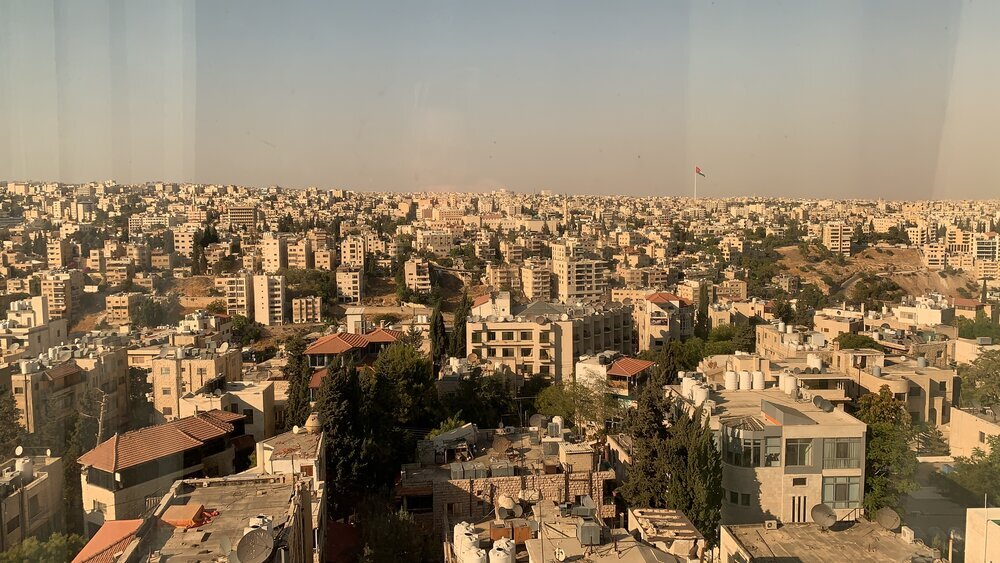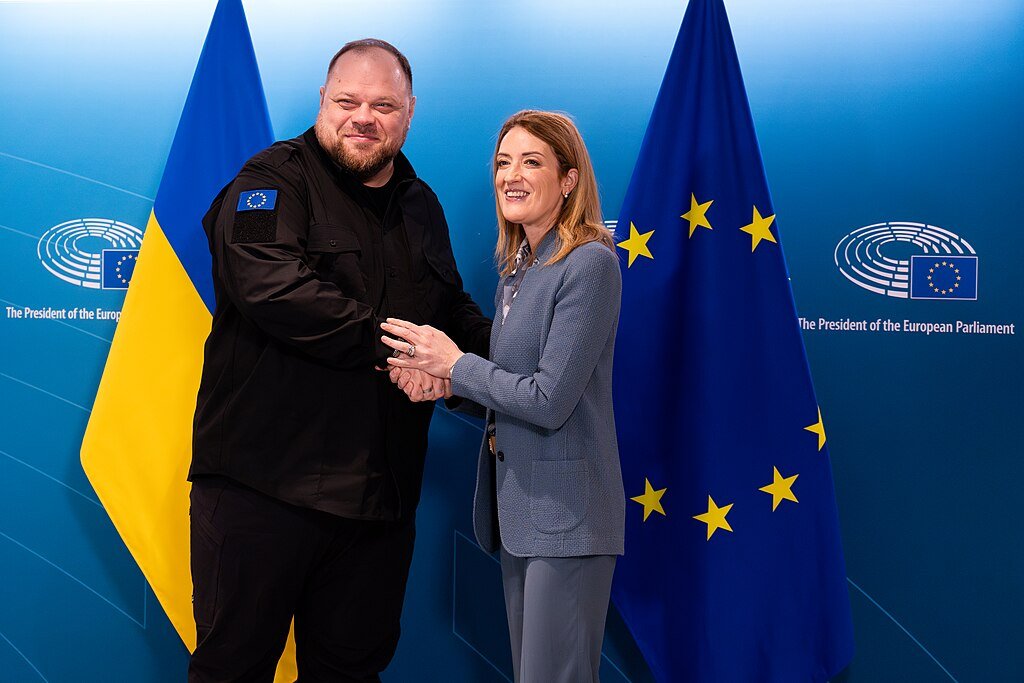
Analysis
Trump is pushing a new artificial intelligence-driven bureaucracy to gut public services and use our data to exploit us, writes Ulises A. Mejias for Truthout.
For the past few months, the world has been watching mass protests unfold in Georgia. These actions represent more than just opposition to the current government; they also reflect a deeper struggle over the country’s future. Caught between European integration and growing Russian influence, Georgians continue to push back against years of Kremlin-led democratic erosion. Their fight extends beyond Russia, shaping Georgia’s place in a shifting global order where the European Union (EU), the United States, and China also hold powerful influence.
In this piece for Turning Point magazine, Gaia Guatri and Shekufe Ranjbar explore the ongoing struggles of Iranian women in the years since the start of the 2022 “Woman, Life, Freedom” movement and the subsequent wave of state repression.
According to the Real Academia Española, a euphemism is defined as a word or expression used in place of one that is harsh, unpleasant, or rude. Euphemisms are more and more rampant in political and economic debates (which is a way of describing what is often mere propaganda). The citizenry, passive and defenseless spectators, summoned only when there are elections and in the face of the enormous power of the mass media and social media, swallow them one after another, incorporating them into our everyday language as if they were undeniable truths.
The first time I ever heard the term “social housing” was at a Democratic Socialists of America (DSA) meeting in Buffalo, NY, in the fall of 2024. A former colleague of mine invited me to the meeting, which was hosted at Crane Branch Public Library in the Elmwood Village neighborhood where I live. Convening that day was the infrastructure subcommittee in the DSA’s Buffalo Chapter. They were discussing housing issues, which have been a professional interest of mine since my first job in public policy in 2016.
On February 6, 2024, New York State (NYS) Senator Cordell Cleare, a Democrat in the 30th Senate DIstrict (including Harlem), introduced Senate Bill 2023-S8494 to establish “the New York State social housing development authority as a public benefit corporation to increase the supply of permanently affordable housing in the state through the acquisition of land and renovation or rehabilitation of existing real property, and through the construction of new, permanently affordable housing.”
And now what? It seems the new US administration has taken the initiative to bring an end to the war in Ukraine. This represents an important shift from the policy developed by Joe Biden, which consisted of promoting and fueling the conflict and trying to put Russia, and in the process Europe, on the ropes.
Let’s examine what we know about social housing. Here I have curated a variety of articles by independent news outlets which have reported on social housing developments “glocally” (that is, locally and around the globe). We selected independent news outlets because they dare to examine the issue via ideas that challenge the status quo. Mainstream (or legacy) media have reported on social housing, too, but their bias is toward capitalist market solutions for the housing crisis. In this context, social housing is casually dismissed as a viable housing strategy. If you read independent media, however, social housing receives treatment as one of many viable housing strategies that can help New Yorkers and other Americans.
Marine heat waves are causing record-breaking ocean temperatures that kill animals and impact ocean-based industries.
We are witnessing the spectacular and, so far, unstoppable rise of all forms of fascism. We find the most recent act of this drama in the United States with the victory in the recent elections of the Republican Party led by Donald Trump, whose electoral program, even beyond demagoguery and grandiose statements, did not hide its intentions and is already being carried out.
On June 13, 2024, the European Court of Justice (ECJ) fined Hungary 200 million euros and imposed a daily penalty of one million Euros for failing to follow the EU’s asylum laws and for illegally deporting migrants. The ECJ stated that Hungary had committed an "unprecedented and exceptionally serious breach of EU law" by restricting refugees’ right to seek asylum.
As Europe grapples with an aging population and declining birth rates, migrant women have become indispensable to the care work industry; filling critical gaps in caregiving roles. According to the International Labor Organization (ILO), there are approximately 169 million international migrant workers worldwide, with nearly 80% of women in this workforce employed in the services sector, including care work.
In the second installment of Echoes & Algorithms, we examine the evolving relationship between artificial intelligence and grassroots journalism. At the heart of this exploration lies a pivotal question: How do AI's ability to process vast amounts of data and its challenges in understanding human complexity influence the narratives of grassroots journalism?
As apocalyptic wildfires continue to burn and proliferate in and around Los Angeles, CA, it is important to seek out coverage and perspectives that help contextualize the story, connect it with larger structures and processes such as the world’s escalating climate crisis, and point readers toward opportunities to provide grassroots support. Below we are curating and aggregating important coverage from US-based independent and grassroots media outlets and also from global outlets that are looking at events from outside the US.
As a professionally trained historian, it’s important for me to introduce my review of The Media and Me: A Guide to Critical Media Literacy for Young People with commentary and analysis on the Philip L. Graham quote: “News is the first rough draft of history.” Graham, former president and publisher of the Washington Post, was reported to have made this claim in 1963, and it has been memorialized as an evocation of journalists’ front line role in the production of history. The quote has been cited as a way to appreciate journalists as the first to document the people, places, and things that matter to the history of a given society – as providing evidence of happenings and a lens through which to view them.
The result of the recent US elections provides further confirmation that what we are witnessing in much of the world is the consolidation of a 21st century form of fascist authoritarianism grounded in the rising power of Big Tech as well as resurgent forms of racism, misogyny, and xenophobia. But it is also an elite project of meeting present and future climate crisis, with all of its horrifying ripple effects, through mass violence (including genocide) and mass manipulation. What does such a moment mean for those of us who work in grassroots and independent media? What does it demand of us?
It is clear that Donald Trump's broad victory in the US elections will have – and already has, in fact – important economic, social and political consequences, both in the United States and on a global scale. And, of course, it also affects Europe.
The rise of AI in journalism comes at a time when traditional media outlets are grappling with dwindling resources, financial instability, and a crisis of public trust. For grassroots journalism, which has historically operated outside these institutional frameworks, the integration of AI presents distinctive opportunities and challenges. As AI becomes more prevalent in content creation, information sourcing, and analysis, we must ask: How does AI influence the identity of grassroots journalism, and what impact does this have on its mission of amplifying marginalized voices?
On August 19, 2024, New York State Governor Kathy Hochul delivered a spirited speech in support of the presidential hopeful Kamala Harris at the Democratic National Convention in Chicago, Illinois. Quite surprisingly, Governor Hochul raised the specter of runaway child care costs as a common issue facing middle class Americans, which, in turn, raised questions about what the governor of New York will do to lower these costs here in the Empire State.
It’s August now, and all the flower fans who visited Buffalo’s 30th annual Garden Walk Buffalo festivities are somewhere enjoying the hundreds of pictures they undoubtedly took walking in neighborhoods like mine. I live in the Bryant neighborhood, where the founders of Garden Walk live on the appropriately named “Garden Walk Way.”
The Aurat March’s expressions of solidarity, and the deliberate centering of womxn who are left most vulnerable in the current system, has led to a radical reimagining of what third world feminist politics can look like and what it can, and should, lead to: emancipation.
Journalists are credited with writing the first draft of history. As a professionally trained historian and budding journalist, I take pride in documenting people, places, things, events and ideas. Just as honorable, to me, is highlighting the primary sources that will help students of the moment and students of the past understand the complexities of right now. Primary sources are data for historians – they are artifacts produced in the time period one is studying that bear direct relation to the topic under investigation.
In his latest analysis of the European political and economic scene, Fernando Luengo argues that the ascent of the far right in the run-up to the 2024 European parliamentary elections cannot be separated from the ongoing problem of rising inequality and the fundamental influence of private capital in the public sector.
In his latest column, economist Fernando Luengo writes ot the warlike climate that is growing in Europe and how it directly shapes a range of problems facing people across the continent and beyond.
From June 6-9, elections for the European Parliament, the only genuinely democratic institution in the community’s institutional framework - its members are directly chosen by the citizenry, whereas the rest are intergovernmental in nature - will be held. It is a good moment to think about the challenges facing the European Union (EU) and, I would say, the entire planet.
It’s very necessary to focus on the terms that are habitually used in economics - and the so-called social sciences in general - and that are often taken for granted. Because these terms almost always have a purpose, which can be difficult or even annoying to uncover. In other words, language, seemingly innocuous, defines a playing field and also, in a way, the rules of the game as well as the possible explanations and alternatives. And this is no small thing.
On December 29, 2023, South Africa brought a case against Israel before the International Court of Justice (ICJ) in The Hague, arguing that Israel was committing genocide against the Palestinian population in Gaza. On January 11-12, 2024, the ICJ held public hearings on South Africa’s request for provisional measures of protection for the people of Gaza and eventually ruled that Israel was responsible for taking all necessary measures to prevent “acts of genocide” in Gaza. The ongoing ICJ case has been the subject of significant debate. To explore the issue further, I reached out to Dr. Somdeep Sen, a frequent Weave News contributor and a professor at Roskilde University.
I headline this article with a question that, given the economic, political, and also military divisions that are shaking the international scene, might appear to have an obvious answer: in effect, globalization is behind us. But there is another, earlier question that turns out to be quite revealing and, in my opinion, is necessary to pose: which globalization are we talking about?
In the capitalist system, writes Fernando Luengo, “Workers offer their labor power to the owners of the means of production, who buy it in exchange for a wage. This is the essence of capitalism; far from being a peripheral or irrelevant issue, I would say that it constitutes one of the keys that explain the operation and reproduction of the system.”






























Vienna, Austria, is the site of what is viewed internationally as the most successful model of social housing development since the early twentieth century.